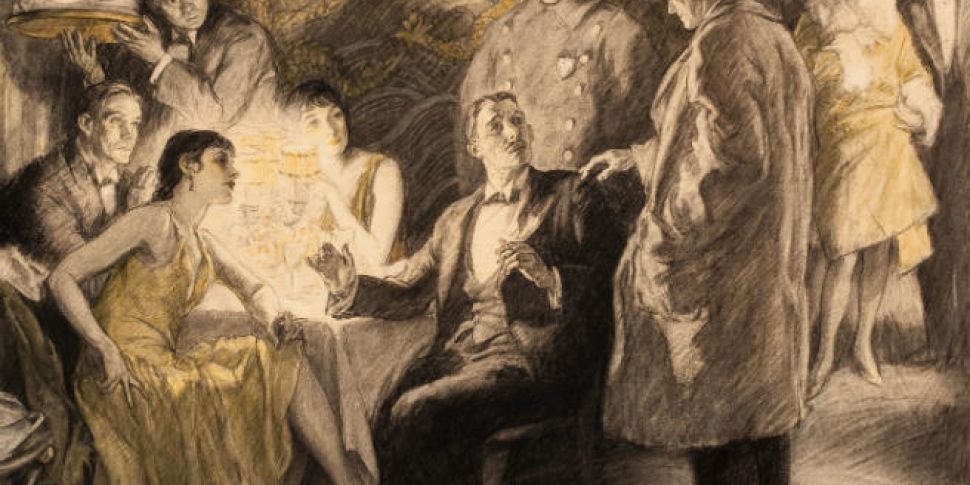In April 1953 the world was introduced to the man who would become the world's most well-known spy. Though famous or infamous are not titles many real-life spies would covet, Ian Fleming's James Bond became both as he took the world by storm. Based on exaggerated tales recounted from his years in British Naval Intelligence, Fleming's quick-witted womaniser came to define the popular concept of the 'spy' as a suave aficionado of everything from booze and gambling to martial arts and firearms. Yet Fleming wasn't the only one writing spy fiction.
The 19th century came crashing in on waves of change. Power was being divested down to the people, as was education and information. As the seas of violence from revolution and the Napoleonic wars ebbed away the public found it was still interested in foreign goings-on. The Congress of Vienna had made international affairs increasingly complex and increasingly interesting, especially as tales began to spread about the sordid tactics used to establish and maintain the 'Concert of Europe'. Coupled with the sporadic revolts and revolutions breaking out and being put down around the world the conditions were perfect for spy fiction to take off.
While the genre was birthed around the 1820s it truly started to come into its own with the coming of the 20th century. As the diplomatic house of cards, so carefully put together at Vienna, began to crumble and fall, large scale war between world powers threatened again. People began to read the paper more carefully as nation's kings and governments clashed heads and rattled their sabers. Britain, however, proved the most fertile ground for popular tales of espionage.
Toward the end of the 19th century governments became increasingly aware of the value of intelligence gathering. Many nations established special bodies to gather and collate information on all aspects of foreign powers or monitor and track their own people. With Russia on the Indian frontier, war in Africa, France threatening Egypt, the rise of the Second Reich, and political and industrial unrest across the home islands it is easy to understand why tales of unseen heroes maintaining international and domestic peace from the shadows would be so appealing to the British public.
There was even an established template thanks to the well-established British crime fiction. Authors like Rudyard Kipling, Joseph Conrad, and Erskine Childers worked off this known writing formula and the uneasy zeitgeist in Britain at the time to lead the way in 20th century spy fiction. Even Arthur Conan Doyle, so instrumental in establishing the detective novel, turned the pipe-smoking Holmes to the theater of international espionage. These pre-war novels were dominated by Childers' The Riddle of the Sands as his tale of a secret German invasion built on the already popular invasion literature and set the standard for tales of clandestine operations delivering an unaware Britain from imminent danger.
This focus on thwarting foreign powers all but disappeared after the First World War as the threats to national security became more clandestine and ideological. Domestic anarchists and communists replaced foreign imperialists as enemy number one in both literature and reality. The 1930s and the rise of fascism shifted the focus back to the international sphere as authors once again found solid targets to aim at. There was, however, now a more real tinge to these stories as the human cost of ideologies began to be counted. Spies were no longer just saving or damning nations but were doing the same to the people in them.
This Second World War generation of spy fiction was as occupied by secret invasion plots as those that had gone before. Improvements in aeroplane, radio, and submarine technology as well as the growth of intelligence agencies and the advent of war itself changed the particulars of spy fiction. Organisations like the Gestapo provided perfect villains. As did the shady character down the road who was calling in aerial bombardment or naval invasion on a small portable radio. These changes paled in comparison, however, to those which were heralded by the mushroom clouds over Japan.
World War II ended with Communist Russia firmly established as the enemy of the democratic West. The resulting 40 year long Cold War allowed for the explosion of spy fiction as authors fed off the fear of nuclear holocaust and 'Reds under the bed'. As the decades rolled into one and other the fuel for spy fiction piled higher and higher. Communism and democracy fought each-other in wars and conflicts across the globe, governments were toppled, people assassinated, and converted defectors whisked away at night. Whole nations were supposedly being toppled or held up by these secret agents.
While these spies were busy saving the world from plots to start World War III the folks involved in counter-espionage were busy keeping everyone safe from domestic threats; or terrorising their own people, it really depended on who you asked. The increasing focus on agencies like the FBI, the KGB, and MI5 reinforced the movement set down by Arthur Conan Doyle as spy fiction was further meshed with the detective novel. The increasingly public spy-game, filled with double-crossing and triple agents, made these home agents ideal heroes in a paranoid world.
While the most popular vision of espionage remains Fleming's tuxedo sporting secret agent the genre was far from a one-trick pony. Authors like Graham Greene and John le Carré, both former spies like Fleming, explored the more boring and morally questionable side of spying in their books. The cost of a life as a spy is shown in sad and unfulfilled protagonists, while we are forced to question the true worth of the lives taken and the causes supported in this cold and hidden war. Not all spy fiction had suave and efficient heroes dispatching evil villains and their henchmen with cool ease.
As the Iron Curtain receded spy fiction was forced to adapt. The public had gotten too used to the thrillers that fed off their paranoia and so domestic and international terrorism became par for the course. This trend continued and accelerated following the attacks on the World Trade Center, the London Underground, Madrid's Cercanías commuter rail system, and the rise of 21st century terrorism. Yet this tide has ebbed a little and today spy fiction is once again in flux as authors attempt to reinvigorate and revolutionise the genre in the wake of modern data-sharing and revelations about national surveillance.
One of the authors engaged in this endeavour is the Irish writer, playwright, and journalist Joe Joyce. In his latest novel, Echoland, Joe looks at Ireland during the Second World War as he tells the story of a young lieutenant working in G2; the intelligence division of the Irish army. Placed on the German desk the young Paul Duggan seems to have stumbled into a boring assignment as his target does little but write ambiguous letters postmarked for a German intelligence post box in occupied Denmark.
After his politically connected uncle enlists his services to track down his missing daughter, however, Paul's life descends down a rabbit-hole of espionage and political intrigue. As both lines of inquiry spiral closer together Paul's view of the world and its workings become increasingly challenged. Listen back as Susan talks with Joe Joyce about the experience of writing Echoland and why he chose to write about Ireland's intelligence division during the Second World War. What will we find out about Paul Duggan and war time Ireland in this novel?
Keeping with the theme of mystery and intrigue 'Talking Books' has a chat with Irish crime writer Alex Barclay. In her latest novel, Harm's Reach, Alex continues the story of FBI agent Ren Bryce as she investigates the murder of a pregnant woman. Alex weaves a mysterious tale around this dead woman that grows ever more complex as the strands unravel. While this case is picked apart so too is agent Bryce's recently found mental stability; it seems today serial investigators are just as troubled as those of the past. Susan talks with Alex about the motivations behind writing crime fiction and her series of books that all look at the world of American criminal investigation.
Rounding off the show Susan speaks with famous Irish authors Deirdre Purcell and Dermot Bolger about adult literacy in Ireland and what is being done to improve it. Listen back as Susan talks with them about their work with 'The Open Door' series and what we can do to challenge and reduce adult illiteracy.









